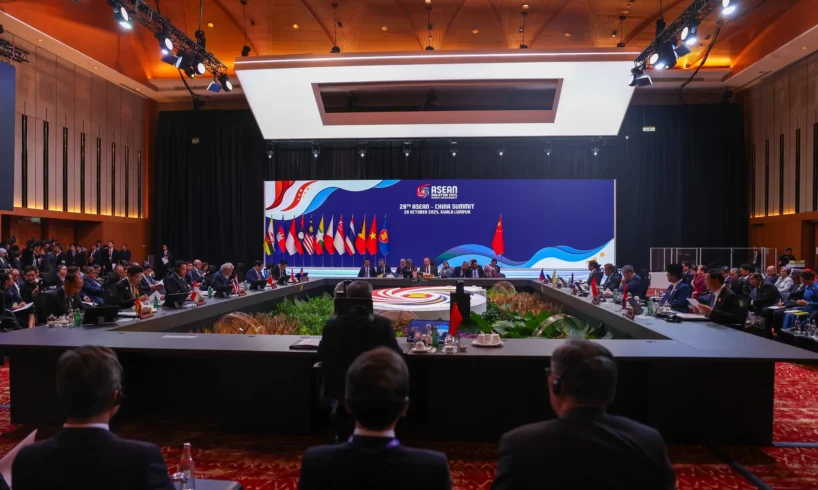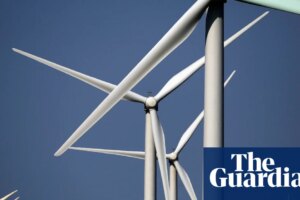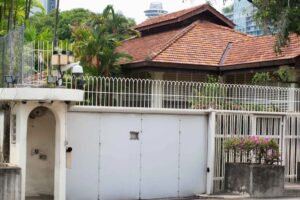
[KUALA LUMPUR] Singapore Prime Minister Lawrence Wong on Tuesday (Oct 28) called on Asean and China to deepen cooperation in trade, connectivity and the green economy.
He noted that the Asean-China relationship is among the bloc’s most substantive, with next year marking 35 years of dialogue relations and five years of their Comprehensive Strategic Partnership (CSP).
To mark the milestone meaningfully, he said both sides should step up cooperation to strengthen mutual trust and confidence – which is necessary for managing issues such as the South China Sea territorial dispute.
He was speaking at the 28th Asean-China Summit, which was attended by Chinese Premier Li Qiang.
This summit took place shortly after both sides signed an agreement to upgrade the Asean-China Free Trade Area (ACFTA) earlier in the morning. The pact first entered into force in 2010.
Negotiations for the upgraded ACFTA, a major trade deal that will strengthen the bloc’s trade relationship with its largest trading partner, were concluded at the 46th Asean Summit in May. Asean statistics put the trade between the two sides as being worth US$771 billion last year.
A NEWSLETTER FOR YOU
Friday, 8.30 am
Asean Business
Business insights centering on South-east Asia’s fast-growing economies.
Singapore’s Ministry of Trade and Industry (MTI) said the upgraded pact will open up opportunities in areas such as the digital and green economies and supply chain connectivity, including sectors such as artificial intelligence and fintech. It will also include commitments to curb unfair business practices and enhance consumer protection online and across borders.
MTI added that the enhancements to ACFTA, one of Singapore’s most-utilised free-trade agreements, will offer greater predictability and create more opportunities for businesses – particularly micro, small and medium-sized enterprises – amid an increasingly contested global trade environment. Top-traded products range from electrical machinery to mineral fuels and oil, and even natural and cultured pearls.
Reuters reported that China is seeking to intensify its engagement with Asean, a region with a collective gross domestic product of US$3.8 trillion, to counter hefty import tariffs imposed by US President Donald Trump’s administration on countries around the world.
It added that Beijing has been looking to position itself as a more open economy, despite criticism from other major powers of its expanding export restrictions on rare earths and other critical minerals.
Tuesday’s ACFTA upgrade also comes days after Li’s first official visit to Singapore over the weekend, when the two nations agreed to work together to decarbonise and digitalise shipping routes between them.
In his speech on Tuesday, PM Wong said the upgrade – which he described as a significant achievement – will further reduce trade barriers, strengthen supply-chain connectivity and unlock opportunities in future growth areas.
But in order for businesses and people from both sides to benefit from it, it must not only be ratified soon, but implemented effectively.
He said that improving connectivity would also be essential.
Therefore, he called on both sides to progressively liberalise the Asean-China Air Transport Agreement, noting that this would help facilitate people-to-people exchanges.
He also spoke about improving data connectivity by facilitating the flow of commercial data and enhancing cross-border trade, particularly in the digital economy.
On the green economy, he said that as the world’s largest producer of renewable energy, China is in a position to support the bloc’s efforts to build an Asean Power Grid by providing its technical expertise.
He added that Singapore would do its part to support sustainable development, including through the Third Country Training Programme with China.
The initiative, formalised under a memorandum of understanding signed during Li’s visit to Singapore, will train government officials from Asean in areas such as the clean-energy transition, sustainable urban development, climate resilience and the Asean Power Grid.
As for the South China Sea, PM Wong reiterated the importance of peace, stability and freedom of navigation in the region, calling for renewed efforts to conclude a substantive and effective code of conduct consistent with international law, including the 1982 United Nations Convention on the Law of the Sea.
“If Asean and China continue to redouble our efforts on cooperation, we can continue to drive sustainable and inclusive growth in our region and deliver lasting benefits to all our peoples,” he said.
Relations with Australia and New Zealand
On Tuesday, PM Wong also spoke at the fifth Asean-Australia Summit and the Asean-New Zealand Commemorative Summit.
At both meetings, he called on the two Indo-Pacific partners to work with Asean to advance cooperation in the digital and green transition – through initiatives such as the Digital Economy Framework Agreement, efforts to tackle transnational issues such as online scams, and projects like the Asean Power Grid.
He added that beyond physical connectivity, New Zealand can also serve as a bridge for inter-regional cooperation by linking Asean and the Pacific Islands Forum.
“We share many common interests between our regions, and there is much to be gained from working closely together,” he said.
Asean also elevated its relations with New Zealand to a CSP on Tuesday, coinciding with the 50th anniversary of their Dialogue Partnership and complementing Singapore’s own upgraded ties with Wellington.
PM Wong also encouraged Australia to continue supporting the region’s development through the Initiative for Asean Integration and the new Singapore-Australia Third Country Training Programme.
Separately, PM Wong met his Vietnamese counterpart Pham Minh Chinh during the Singapore-Vietnam Annual Leaders’ Meeting, where both sides agreed to hold the meeting annually to guide bilateral cooperation.
Tuesday’s meeting was their third this year, which PM Wong said reflects the “close cooperation and friendship” between the two countries.
It also included the launch of a plan of action under their upgraded CSP, formalised in March. It outlines concrete steps to deepen collaboration in areas such as renewable energy, technology and agri-trade.
PM Wong also met Malaysian Prime Minister Anwar Ibrahim on the sidelines of the summit, congratulating him for leading Asean through a productive year marked by deeper integration, greater unity and broader engagement with global partners.





